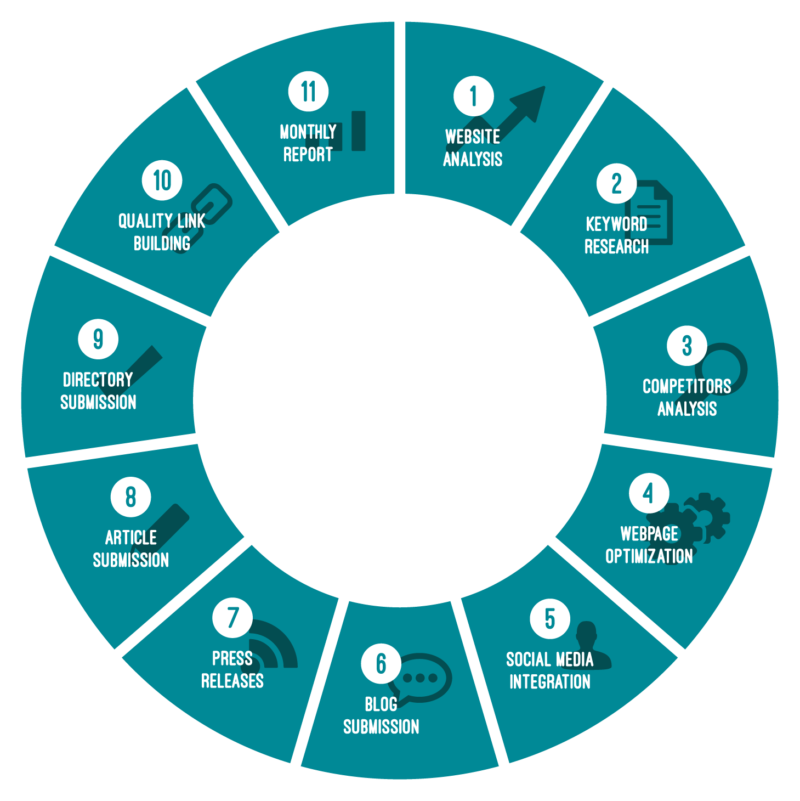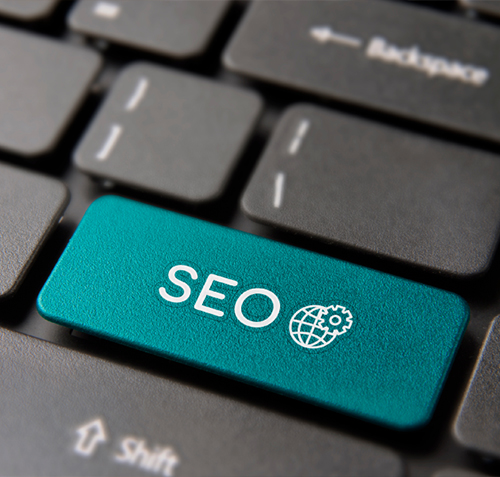An Introduction to Organic SEO
What is Search Engine Optimization?
There are 3.5 billion Google searches performed daily. Let’s think about that for a moment. When you break it down, that’s over 40,000 searches per second. Even though most people use Google more than three times each day, few understand how websites get there in the first place. It doesn’t happen by luck or chance. It’s the outcome of a highly strategic process known as search engine optimization or SEO for short.
This is a method of building structure in a highly chaotic digital world—one that both people and Google understand. In simple terms, SEO’s ultimate goal is to increase your site’s prominence in search engines without paid advertising.
When done right, SEO can improve your search engine rankings and help generate organic leads. Naturally, it’s become a fundamental part of digital marketing, and many businesses are investing in their search engine visibility.

Search Engine Basics
With over 92 percent of the market share, Google is by far the most popular search engine. Despite its dominance, all search engines basically work the same way. They’re massive collections of content—articles, recipes, products, and businesses.
When you enter a search term, referred to as keywords, they sort through billions of webpages to find which content is most relevant to your query. This process is known as “crawling.” Then, the search engine puts the sites into an order based on how well they match the search query.
Search engines use algorithms to determine which content is more relevant and valuable to the user. Google checks over 200 criteria to rank websites from most to least relevant. These ranking factors include items such as website security, mobile-friendly design, and overall user experience.
How SEO Works

Google wants to provide users with the best results as quickly as possible. Search engine optimization is a way to show Google that your content is suited for the topic at hand and relevant to the user. Typically, sites that aren’t optimized fall lower in search results, and sites that have been optimized appear higher in search engine results pages (SERPs).
Optimization can take on many forms, but generally, tactics are designed to cater to Google’s algorithm. Front-end SEO includes everything within your site that is visible to both website users and search engines. These are the on-page elements that can be optimized for Google, like content, titles, and photo descriptions.
On the other hand, technical SEO is less about website users and more about Google. It focuses on the systems that allow your website to communicate with search engines, like a website’s coding. Technically optimizing your site ensures Google can understand your content, index it, and show it in search results.
Quality Content is Critical

In the SEO world, quality far surpasses quantity. Google prioritizes relevant, valuable content over slim, deficient sites. It’s better to have a few well-written pages than a bunch with next to nothing on them.
Keyword-rich content can help your site appear at the top of Google’s results and bring more qualified users to your website. By expanding your sitemap with diverse keywords, you create more touchpoints for potential customers, whether it’s through pages found within your site’s navigation or pages that can only be found using a search query, known as landing pages. And by targeting specific keywords, you can attract people who are genuinely interested in your product, service, or content.
SEO vs. Paid Search
Depending on what your goals are, a paid search campaign might be your best option. Unlike SEO, paid ads are immediate. If you’re hosting an event or having a sale, quick exposure is crucial, and search engine optimization probably won’t do much for you. While ads are great for time-sensitive things, they’re not ideal for long-term use because visibility ends as soon as you stop paying for the ad.
Organic or unpaid SEO is a process that builds upon itself. The content on your site stays there until you manually take it down. And you don’t need to continuously pump money into your website to keep the current content live like you would an ad.
Black Hat SEO
Be wary about marketing companies that promise fast results or a certain number of website visitors. Most likely, they’re using prohibited search engine optimization tactics known as Black Hat SEO. This method focuses on optimizing your site for search engines using any means possible, including the ones that violate Google’s Terms and Conditions.
Black Hat SEO may yield a lot of traffic, but it can also lead to severe punishments. Search engines can penalize websites, lower their rankings, or de-index them altogether.
There are no legitimate quick fixes or overnight rankings. When you optimize your site with ethical search engine optimization, known as White Hat SEO, it may take weeks to get indexed. But that’s okay. Growth may be slow, but it will be steady and ongoing. And you won’t run the risk of getting penalized.
There are a lot of dynamic elements that affect a website’s position within a search engine. It’s common for websites to fluctuate in ranking due to algorithm changes and increased competition. And sometimes, there’s not a clear-cut way to move up in ranking. But don’t be discouraged. SEO takes time and patience.
We understand better than most that search engine optimization is a difficult undertaking, especially when trying to do it on your own. Our team knows what it takes to enhance your existing content visibility and create new pages to boost rankings and increase traffic. We can help if you want to provide Google users with the content they’re searching for.
Our SEO Services